theartsdesk Q&A: Eddie Marsan and the American Revolution, posh boys and East End gangsters | reviews, news & interviews
theartsdesk Q&A: Eddie Marsan and the American Revolution, posh boys and East End gangsters
theartsdesk Q&A: Eddie Marsan and the American Revolution, posh boys and East End gangsters
Versatile actor on playing John Adams opposite Michael Douglas in Apple TV+’s ‘Franklin'
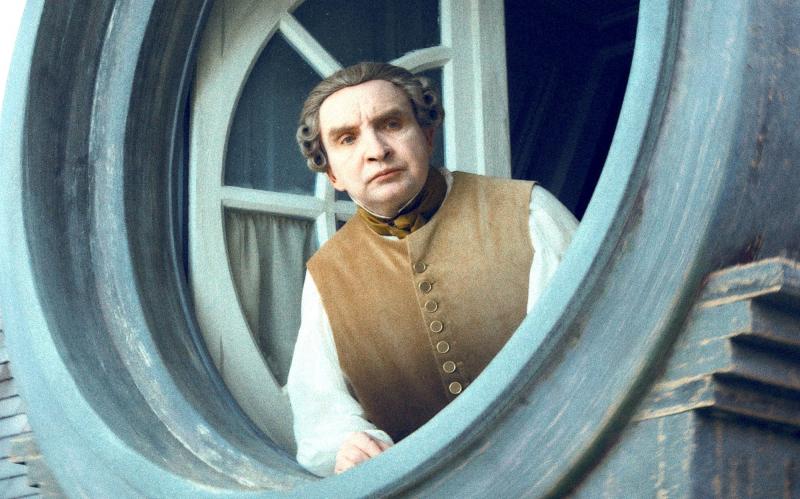
He’s not the kind of actor who has paparazzi following him around Beverly Hills or staking out his yacht in St Barts, but Eddie Marsan, born into a working class family in Stepney in 1968, has amassed a list of acting credits that your average superstar will never be able to match.
On the big screen he has appeared in such diverse productions as Michael Mann’s Miami Vice, V for Vendetta, Me and Orson Welles, Warhorse, Atomic Blonde, Hancock and Entebbe, and he plays Amy Winehouse’s father Mitch in the new biopic Back to Black.
He’s also part of Guy Ritchie’s regular stable, having appeared in Sherlock Holmes, Sherlock Holmes: A Game of Shadows, The Gentlemen and Operation Fortune: Ruse de Guerre. Meanwhile he’s been all over the telly, from Grange Hill, Kavanagh QC and Judge John Deed to Silent Witness and Ray Donovan, and even played Bob Dylan in Urban Myths (2017). Britbox is currently hosting The Thief, His Wife and the Canoe, in which Marsan stars as John Darwin, the man who faked his own death and hid in the house next door.
Now Marsan is one of the leading characters in Apple TV+’s series Franklin, in which he plays statesman, diplomat and President-to-be John Adams opposite Michael Douglas as Benjamin Franklin (pictured below, Douglas and Marsan). It’s the story of the American delegation that went to Paris to convince Louis XVI to support the nascent United States in its Revolutionary War against British forces, and after much tortuous wrangling signed the Treaty of Paris in 1783. “I’m really proud of it,” says Marsan. “I think it’s a great drama to put on in this election year as well.”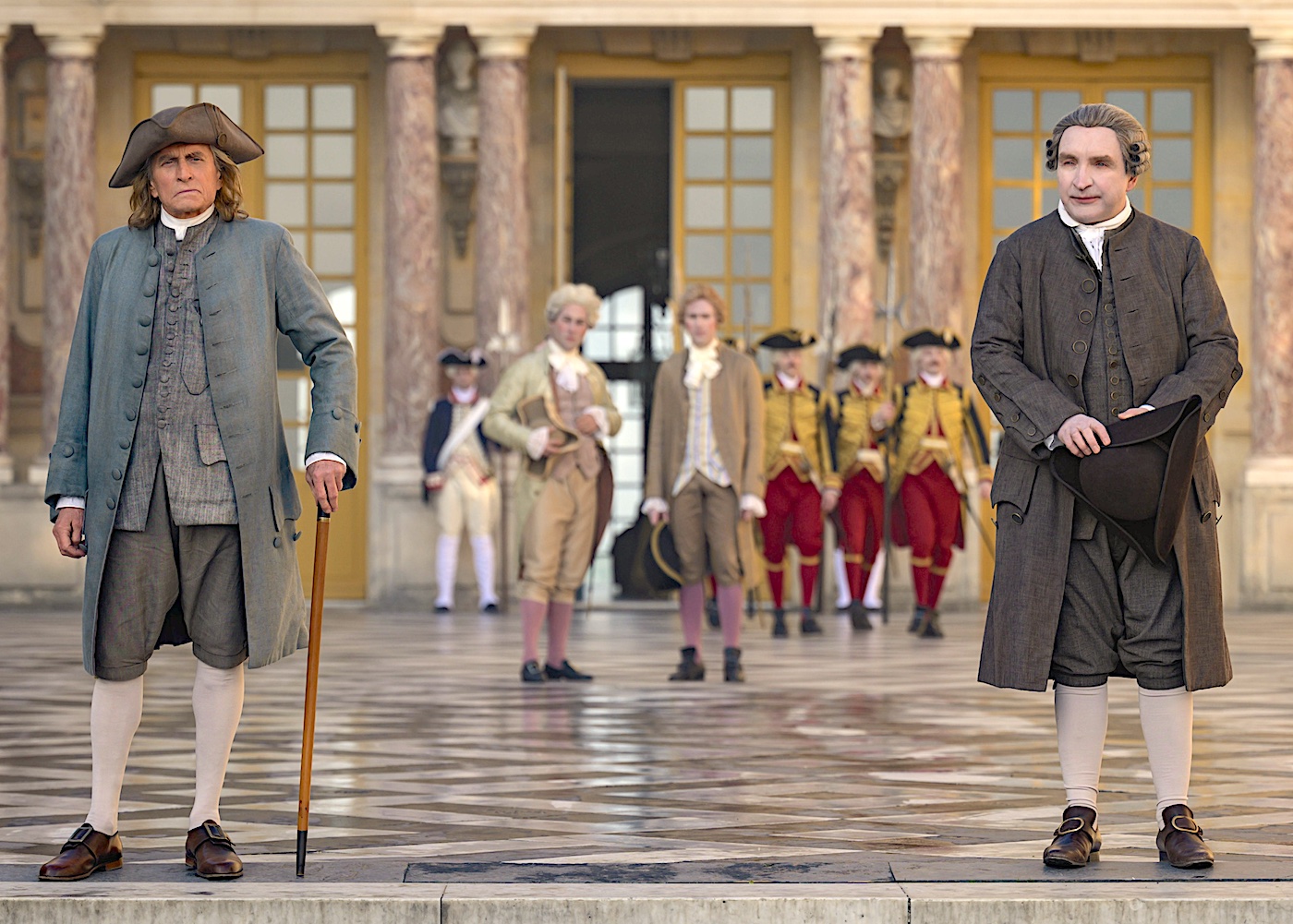 ADAM SWEETING: John Adams is someone you knew about and had an interest in?
ADAM SWEETING: John Adams is someone you knew about and had an interest in?
EDDIE MARSAN: Yes. I read Stacy Schiff’s book The Revolutionary: Samuel Adams (2022), but I read the David McCullough biography 15 years ago and I was fascinated by Adams. I thought he was a brilliant man. I had the McCullough book on audio so I would walk around listening to it as part of my research to play Adams. In this drama, if Benjamin Franklin is the libertarian aspect of the American psyche, then John Adams is the Puritan aspect. When they come together they despise each other but they get things done for the sake of the greater good. Which is a good analogy for the way America works if it can, if it doesn’t fall apart. The writing is brilliant in that, and using those two characters as a metaphor for the country.
Do you feel the Franklin script did justice to him?
I think it did. I think it’s very interesting. The HBO series with Paul Giamatti (John Adams, 2008), when it was written America had a certain need of how to interpret its founding fathers. It needed to almost deify them to a certain extent. Now there’s more scope for a more… to make them more human, to humanise them, to see them warts and all, which is where we are… you know the famous saying that the way a society portrays its history says more about the way a society is now than about the history it’s portraying. Now there’s more of an enthusiasm to humanise the founding fathers, which is what the writers Kirk Ellis and Howard Korder did with John Adams in this drama. And also John Adams comes to Paris and basically kicks Franklin up the arse, telling him he’s having too much of a good time, he’s got to get on with it.
It’s interesting how the British and French are portrayed. It’s not especially flattering.
I thought the French actors were amazing in this, the level of acting and the skill, and the way that they portray the court and the relationship with Franklin. Also in episodes 7 and 8, where you have the negotiations with the British contingent to sign the Treaty of Paris to form the nation of America, I think Gary Lewis playing Richard Oswald was just brilliant. That’s what the whole series is eventually focusing in on, that moment (pictured below, Marsan in Ray Donovan).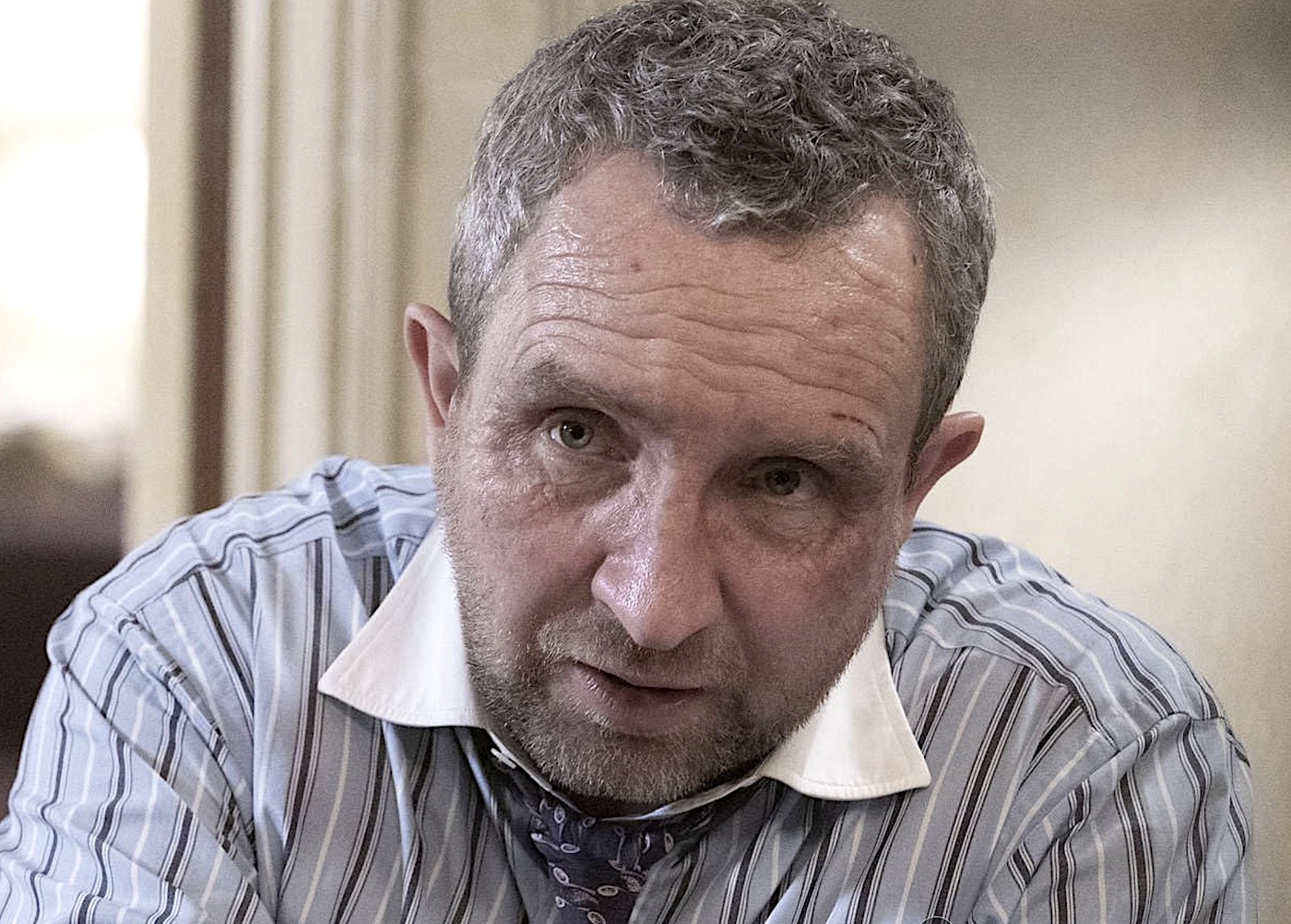 Thibault de Montalembert, who plays the Comte de Vergennes, is a fantastic actor isn't he?
Thibault de Montalembert, who plays the Comte de Vergennes, is a fantastic actor isn't he?
Yeah, I thought he was incredible. I did lots of scenes with him. Most of my stuff was with Thibault, but actually when I saw all the other French actors I was just so impressed with them. I thought that they kind of put it up to another level. It made it cinematic in a strange way ‘cos it was like a kid watching a brilliant French film. You know when you take a girl to see a French film because you think it’s going to impress her, and then you find out that you really do like the French film.
In your relationship with Franklin, you’re the stern, rational voice aren’t you?
Yes, the way we were making it was that everything Adams said was right but he was a pain in the arse. And Franklin is the great seducer. But if you hadn’t had Adams it wouldn’t have got done, you needed the combination of them both really. I think someone like Franklin must have found him very difficult to be around really because he was such a stickler for morals and honesty and integrity. He had incredible integrity and courage.
You have that speech where you tell Franklin all the things you hate about him.
Yes, Howard Korder wrote that, brilliant writing isn’t it? I just thought "I’m doing this with the great Michael Douglas and they’ve given me this great speech" – it’s a wonderful scene (pictured below, Marsan with Jude Law in Firebrand).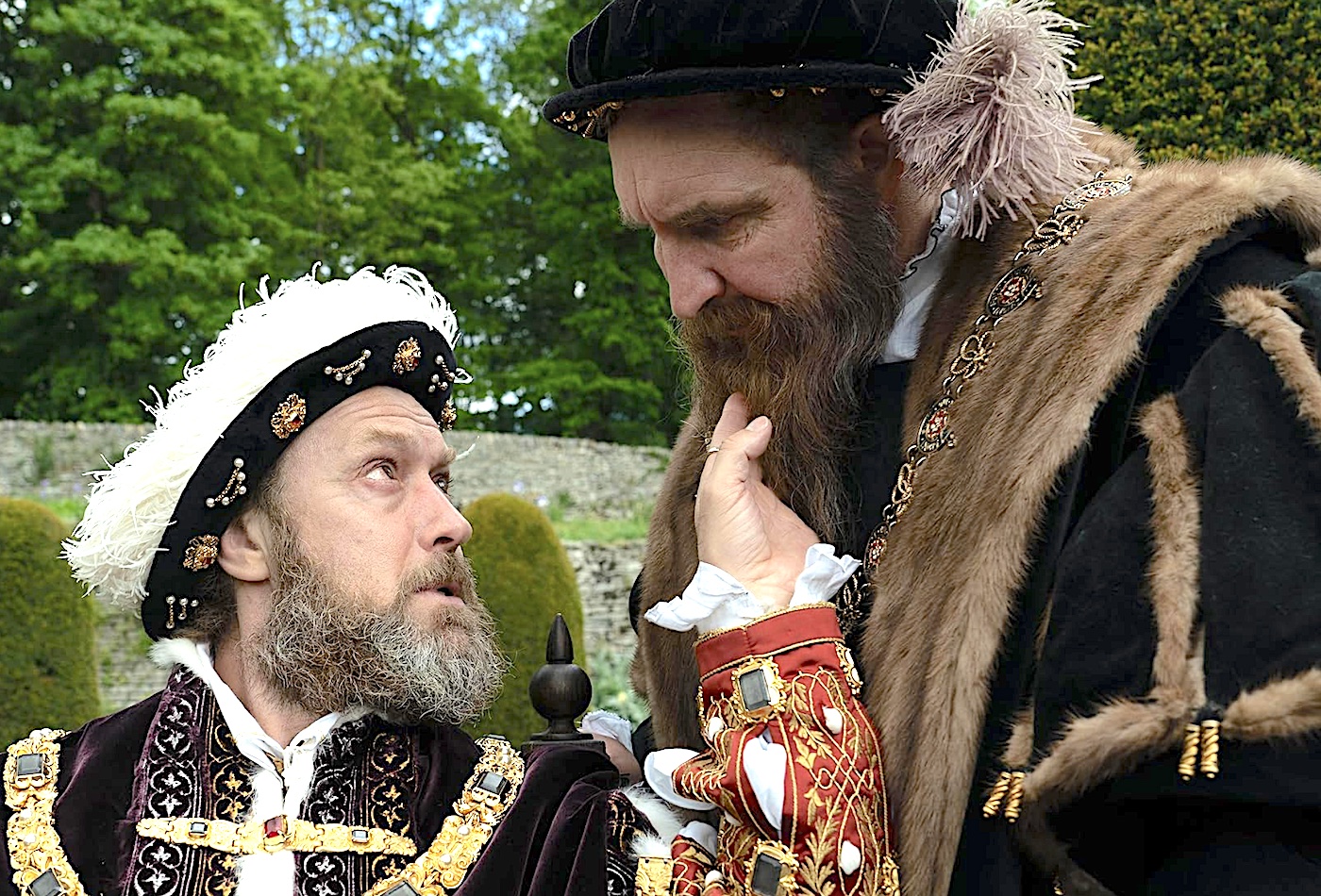 You say all those things you don’t like about him, but you have to have him there to get the negotiations over the line?
You say all those things you don’t like about him, but you have to have him there to get the negotiations over the line?
Yeah, I think it’s a great lesson. In the last episode, there’s a scene where Adams, Franklin and John Jay [Ed Stoppard] talk about what America should be and what it needs to be. If it doesn’t have all these qualities of education and equality and the rule of law, then it doesn’t deserve to exist. And when Adams said that, the Americans on the crew found it really emotional, especially with what America is going through now. Because it’s so divided and because it could be the end of the Republic if Trump gets in. It’s a terrifying proposition but what’s really interesting is when Adams says to Franklin "I despise you but I trust you". That’s something that we’ve forgotten with political discourse in the world at the moment, because populism has come to the fore for many different reasons.
I think one of the reasons is that social media can only deal with populism. Populism is very binary and social media exacerbates that. We’ve forgotten that there are people we disagree with but we can still like them and still trust them, and at the moment we hate people we disagree with, and that’s a relatively new thing. This idea that you could never kiss a Tory or democrats are just communists, to me it’s a load of old bollocks. We all live with people who have different views to us all the time, and we interact with them and we realise that their opinion on one thing isn’t the measure of their character. I know so many people I don’t agree with politically but I quite like them, and I know loads of people who I agree with politically and I can’t fuckin’ stand them. That’s the way life is. It's paradoxical like that, y’know?
All the nuance has gone out of thinking.
I think we’ve got to learn to disagree well, learn to disagree with grace. People believe so much in the virtue of their opinion that they think it justifies them acting immorally, that it justifies abuse. But to have an opinion costs fuck all. How you treat people who don’t agree with you, that’s a real measure of someone’s character I think.
So you would say the characters in Franklin are showing a more enlightened way to approach political or social problems?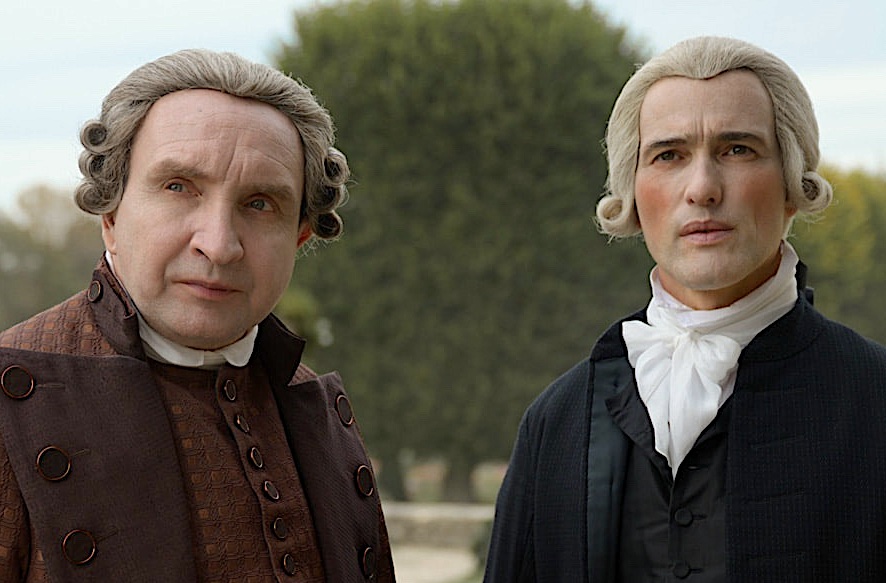 I think so. I think there’s an incredible integrity with men like Franklin and Adams and John Jay. They were serving something greater than themselves, and that allows you to disagree gracefully. It’s like saying I may not agree with you but I love the fact that you’re asking the same question as me (pictured above, Marsan and Ed Stoppard in Franklin).
I think so. I think there’s an incredible integrity with men like Franklin and Adams and John Jay. They were serving something greater than themselves, and that allows you to disagree gracefully. It’s like saying I may not agree with you but I love the fact that you’re asking the same question as me (pictured above, Marsan and Ed Stoppard in Franklin).
Franklin is an unusual show, because of its scope and subject matter, and because a lot of it is in French with subtitles. It demands something from the viewer.
It does, though we’re all now used to watching things in different languages. In the UK we were watching all these Scandi dramas and we watch loads of French programmes. Thibault’s Call My Agent was a great success. Franklin’s viewing figures are really quite high, but it’s come in under the radar and intelligent people really appreciate it. It's like a streaming version of a great book. It’s brilliant that Apple had the courage to make it.
Did you see Manhunt, Apple’s series about the assassination of Abraham Lincoln?
I did. I think American history is fascinating. I walked through New York all day yesterday, and the fact that within 200 years it became the most populous and powerful city on earth is amazing, and it’s all made from immigration. It’s a testament to how brilliant the country is. I’m a big fan of America to be honest with you. It’s trying to live up to its ideals and every generation finds new ways in which it can live up to them even more, but it’s very hard to live up to ideals when everybody’s struggling economically.
You campaign for more opportunities for working class people in acting and the arts. Has there been any improvement?
I think on the surface there has, but they recently came out with a report that says it’s now 12 per cent of people on film sets who come from under-privileged backgrounds. I think there’s more that needs to be done, and I think one of the things we have to do is challenge the unaware narcissism of the privileged classes, to be honest with you. I have a theory that all these schemes are just means by which the privileged classes can feel heroic. Because it’s not really about helping people, it’s about going to dinner parties and awards ceremonies and celebrating yourself for how progressive you are. I may get in trouble for saying that but I just think there’s a great desire to infantilise the working class rather than empower them (pictured below, Marsan and David Mattey in Hancock).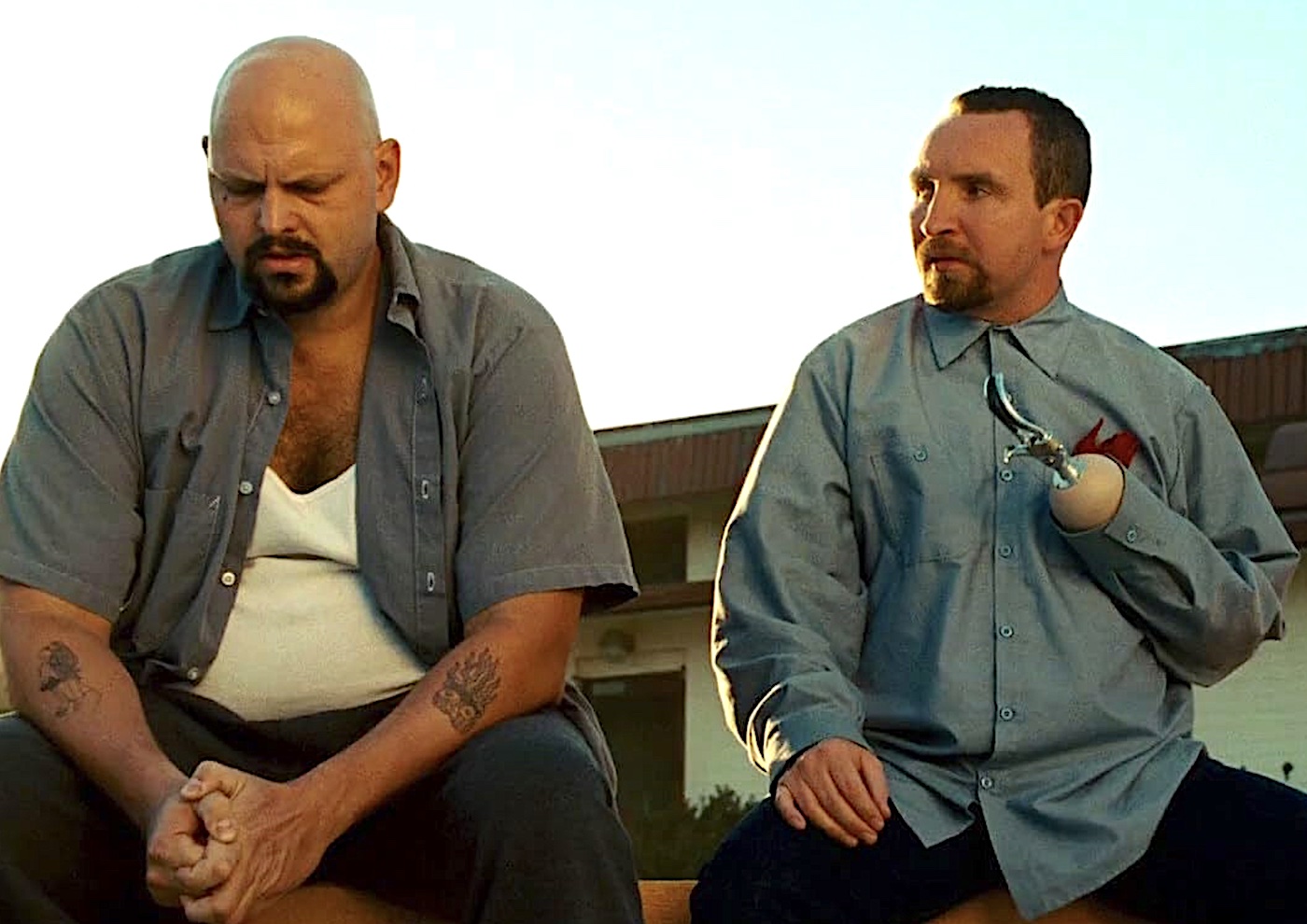 I tell you what’s very interesting. I’ve just done a drama called Supacell with Rapman, who I think is a brilliant young filmmaker. I thought Top Boy was an amazing drama, and when you watch those dramas where the black community are making films about the black community... they’re not caricatured at all and there’s an authenticity to them. But often you get quite posh blokes who have got this fantasy of being East London gangsters and everyone talks in this cod-caricature East London way. Because the characters are white and it’s the white working class, the privileged middle class boys can play those characters. They can play-act being gangsters. You think "you posh boys have got this fantasy idea of what it means to be an East End gangster, but you literally haven’t got a clue about how violent and horrible and nasty they are. You have a fantasy, you buy an overcoat with a fur collar and you think you’re a fucking gangster. You don’t know what you’re talking about."
I tell you what’s very interesting. I’ve just done a drama called Supacell with Rapman, who I think is a brilliant young filmmaker. I thought Top Boy was an amazing drama, and when you watch those dramas where the black community are making films about the black community... they’re not caricatured at all and there’s an authenticity to them. But often you get quite posh blokes who have got this fantasy of being East London gangsters and everyone talks in this cod-caricature East London way. Because the characters are white and it’s the white working class, the privileged middle class boys can play those characters. They can play-act being gangsters. You think "you posh boys have got this fantasy idea of what it means to be an East End gangster, but you literally haven’t got a clue about how violent and horrible and nasty they are. You have a fantasy, you buy an overcoat with a fur collar and you think you’re a fucking gangster. You don’t know what you’re talking about."
Do you know any East End gangsters?
I knew lots of ‘em. That’s one of the reasons why I play a lot of nasty men and a lot of cowards, because when I grew up there were lots of nasty men and I was scared of them.
How do you survive in that environment?
Through the kindness of people in my community, my community was amazing. I’m not exceptional in my community, I’m one of many who have done well, and one of the reasons why we’ve all had a certain amount of ambition is because we lived in chaos. There was the chaos of poverty and there was a moral chaos as well. All of us have kind of succeeded because we wanted control over our lives and we didn’t want to be subject to chaos any more.
Are there people in the acting world you’d tip your hat to?
Yeah, Timothy Spall, I’m really pleased that he got a Bafta. I think Gary Oldman is amazing in what he’s done. I look at a friend of mine, Benny Wong, an actor of Chinese descent, he comes from Manchester, when we first started acting he couldn’t get a job. Now he’s doing big Marvel films and he’s headlining shows on all the streamers. He was always a brilliant actor and he just stuck at it when the obstacles were against him. Look, the Sunday Times put Laurence Fox on the cover because he had a nervous breakdown and became a right wing politician, but he’s done fuck all compared to Benny Wong. Put Benny on the fucking cover! He’s done much more than Laurence Fox.
Add comment
The future of Arts Journalism
You can stop theartsdesk.com closing!
We urgently need financing to survive. Our fundraising drive has thus far raised £49,000 but we need to reach £100,000 or we will be forced to close. Please contribute here: https://gofund.me/c3f6033d
And if you can forward this information to anyone who might assist, we’d be grateful.

Subscribe to theartsdesk.com
Thank you for continuing to read our work on theartsdesk.com. For unlimited access to every article in its entirety, including our archive of more than 15,000 pieces, we're asking for £5 per month or £40 per year. We feel it's a very good deal, and hope you do too.
To take a subscription now simply click here.
And if you're looking for that extra gift for a friend or family member, why not treat them to a theartsdesk.com gift subscription?

Comments
Great interview. Such
Great interview. Such superbly acted and well written historical dramas are too rare and should be celebrated. Mansans was an absolute delight as the irascible Adams. Thank you for this great informative interview. Everyone should be receiving awards for this Apple series.
Thanks Elizabeth, glad you
Thanks Elizabeth, glad you liked it! Eddie was a fascinating guy to talk to, with a wide range of interests, and as you can probably tell he has some quite strong opinions.